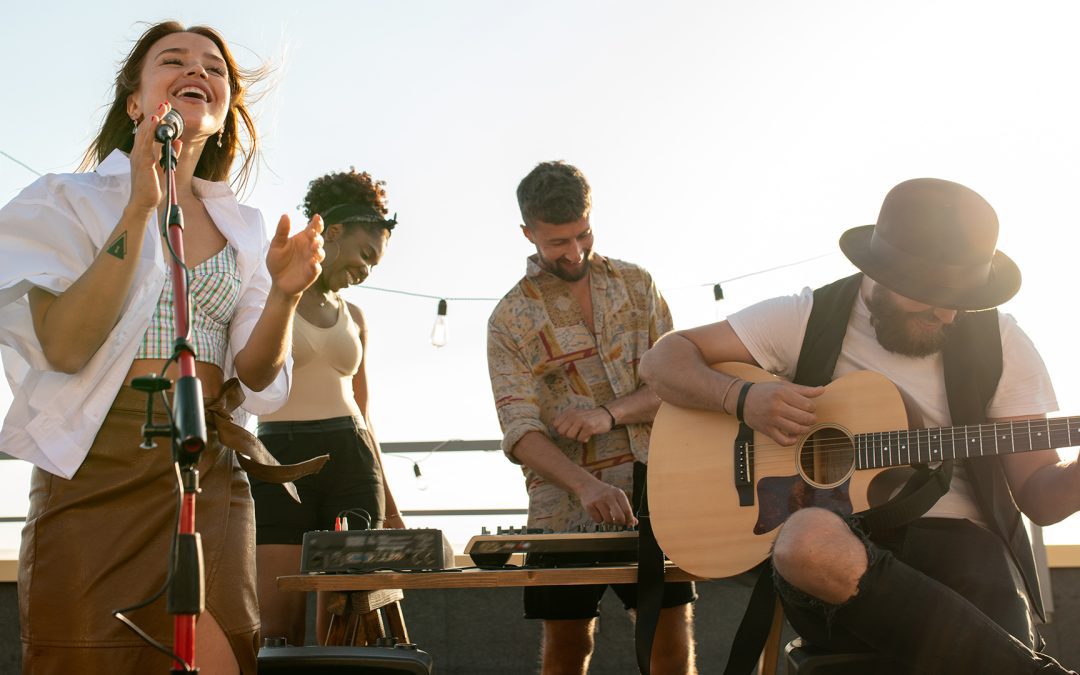Naturally, as the weather changes, your preparations and safety toolkit must also adapt to the warmer temperatures. You can’t rock up on stage and give your best performance if you’re hot and bothered. Luckily, there are some handy tips and tricks to beat the heat.
In this article, we’re looking at the two main factors that performers must consider when the sun’s out: sun protection and hydration. Scroll down to get informed before your next performance!
Protecting Your Skin in the Sun
Cancer Research UK discovered that a third of adults protect their skin while abroad but not at home in the UK.
True, the UK’s summer isn’t as hot as Spain or Greece. However, the UV index can be as strong in the British Isles as in the Costa del Sol. So, even on cooler days, you can get burned.
Why Are Sunburns So Dangerous?
Let’s quickly take a step back. Why are sunburns so dangerous if they fade away? And what’s the UV index?
Sunburns may seem like a temporary inconvenience, leaving you with redness and short-term pain. However, their impact can be far more severe. They are a primary contributor to skin cancer, as they harm the DNA in your skin cells. While your body does its best to repair this damage, repeated or severe burns can eventually lead to mutations and the development of cancer.
The UV index measures the level of ultraviolet (UV) radiation. The higher the UV levels, the larger the chance of sunburns.
According to the World Health Organisation, UV levels of three or above require sunscreen and skin protection.
How to Protect Yourself Against Sunburns
Performing outside this summer? Add sun cream with SPF to your checklist.
SPF (sun protection factor) tells you how well the cream protects your skin against UV rays. The higher the SPF, the better protected you’ll be. So, if you’re on stage for a long time, SPF 30 or 50 are great choices.
Other ways to protect your skin include seeking shade between 11 a.m. and 3 p.m. and wearing t-shirts or long sleeves, hats, and sunglasses.
This might be impossible if your show is during these hours, or you have a restrictive costume. In this case, stay hydrated and top up your sunscreen before the act.
Putting Hydration First
Another way you can protect yourself against the summer sun is through adequate hydration.
Spending long hours outside can lead to dehydration, as we sweat more and lose electrolytes. This can also lead to heatstroke, the most serious heat-related illness where the body can’t control its own temperature.
How Often Should You Drink Water in Summer?
Expert guidelines recommend drinking six to eight glasses (or 1.2 to 2 litres) of water daily.
But you don’t have to drink this all-in-one gulp.
Slowly sip water throughout the day to ensure you’re constantly hydrating yourself. Coffee and tea do count in your water intake, as studies have shown that their diuretic effect doesn’t affect your overall hydration.
Invest in a sustainable water bottle and bring it with you to work. If you organise productions, make sure your cast has access to cold water backstage!
Final Thoughts
Suncream? Check. Water bottle? Check. Perfect performance? Check.
Hopefully, this blog has reminded you of the extra arrangements needed for summer shows and tours. It’s easy to forget about SPF and hydration, but they’ll come back to bite you if you’re not prepared.
Good luck and enjoy the weather!

